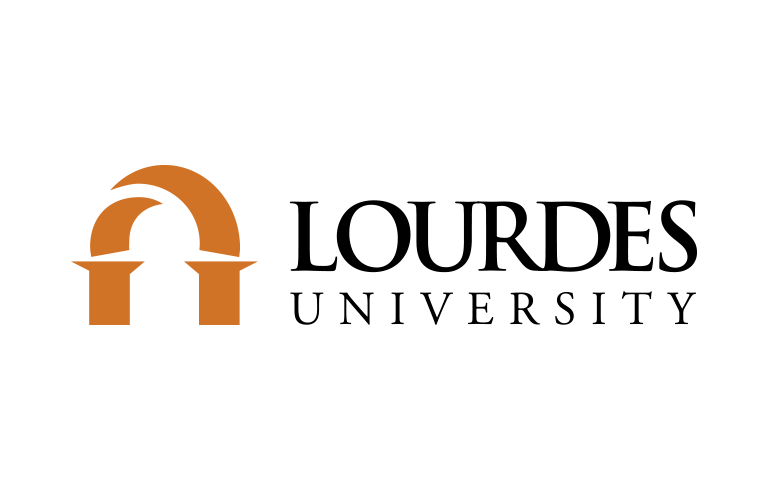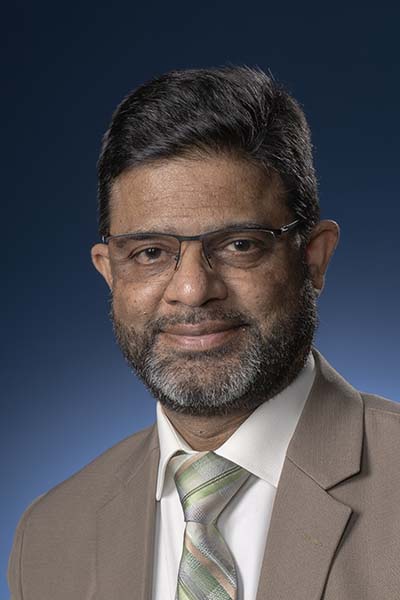
Trine University ready to assist Lourdes transfer students
Trine University stands ready to assist students of Lourdes University impacted by its decision to close at the end of the 2025-26 academic year.
May 29, 2025
 The Council on Undergraduate Research (CUR) has welcomed Haseeb Kazi, Ph.D., professor
of mathematics at Trine University, to its Board of Directors.
The Council on Undergraduate Research (CUR) has welcomed Haseeb Kazi, Ph.D., professor
of mathematics at Trine University, to its Board of Directors.
Dr. Kazi was named to the board for a three-year term, beginning June 1, along with Sarah Johnson, Ph.D., associate professor of psychology at Moravian University and Tim Raines, Ph.D., vice president of quality initiatives at the Indiana Afterschool Network.
The organization said each brings a unique perspective and deep commitment to advancing undergraduate research across diverse institutional and community settings.
“Their combined experience will support CUR as it expands its national reach, elevates its strategic initiatives, and promotes equitable access to high-quality undergraduate research for all students,” CUR said in a press release.
“I am deeply honored to continue my long-standing connection with the Council on Undergraduate Research. What began as a small seed, rooted in a passion for giving back to academia, has grown over the years into a thriving tree, nurtured by meaningful collaboration, a shared dedication to supporting student research, and mentorship that transforms both advisor and advisee alike,” Dr. Kazi said.
“Working alongside such a distinguished group of scholars remains both humbling and enlightening. The true value of this work lies not just in what we contribute but in what we gain and carry forward: the joy of discovery, the fulfillment of guiding new talent, and the privilege of helping shape the next generation of thinkers and leaders. Here’s to continued growth—onward and upward!”
“We are thrilled to welcome Drs. Johnson, Kazi and Raines to the CUR Board of Directors,” said Lindsay Currie, executive officer of the Council on Undergraduate Research. “Each brings a unique lens and a wealth of experience that mirrors the diversity and depth of our membership. As undergraduate research continues to evolve, their leadership will be essential in helping CUR expand access, champion innovation and strengthen research opportunities for students across disciplines and institutional settings.”
15-year history
Dr. Kazi’s association with CUR began about 15 years ago when he attended the organization’s three-day national workshop. He became a formal member shortly thereafter.
In 2013, he was elected as one of the 24 members of what was then called the Mathematics and Computer Science Division. He was unanimously elected division chair in December 2021, a position he held until the end of May 2025.
During his tenure as chair, the division experienced remarkable advancements and implemented new initiatives, including a seminar series featuring area specialists, now expanded to include award-winning undergraduate and graduate researchers.
The division also has expanded its support for student research, faculty mentorship and innovative academic initiatives.
“Through strategic teamwork and joint leadership, we further promoted the division's published research blog series, reinforced our support for the organization's esteemed journal SPUR, and spearheaded renaming the division to the Mathematical, Computing, and Statistical Sciences Division, thus better representing the eight academic and research disciplines it serves: mathematics, computer science, statistics, data science, actuarial science, informatics, cybersecurity and information technology,” Dr. Kazi said.
About CUR
Founded in 1978, the Council on Undergraduate Research (CUR) focuses on providing high-quality and collaborative undergraduate research, scholarly, and creative activity. Among the many activities and networking opportunities that CUR provides, the organization also offers support for the professional growth of faculty and administrators through expert-designed institutes, conferences, and a wide-range of volunteer positions.
The CUR community, made up of nearly 700 institutions and 13,000 individuals, continues to provide a platform for discussion and other resources related to mentoring, connecting, and creating relationships centered around undergraduate research. CUR’s advocacy efforts are also a large portion of its work as they strive to strengthen support for undergraduate research. Its continued growth in connections with representatives, private foundations, government agencies, and campuses world-wide provides value to its members and gives voice to undergraduate research.
CUR focuses on giving a voice to undergraduate research with learning through doing. It provides connections to a multitude of campuses and government agencies, all while promoting networking and professional growth to its community.